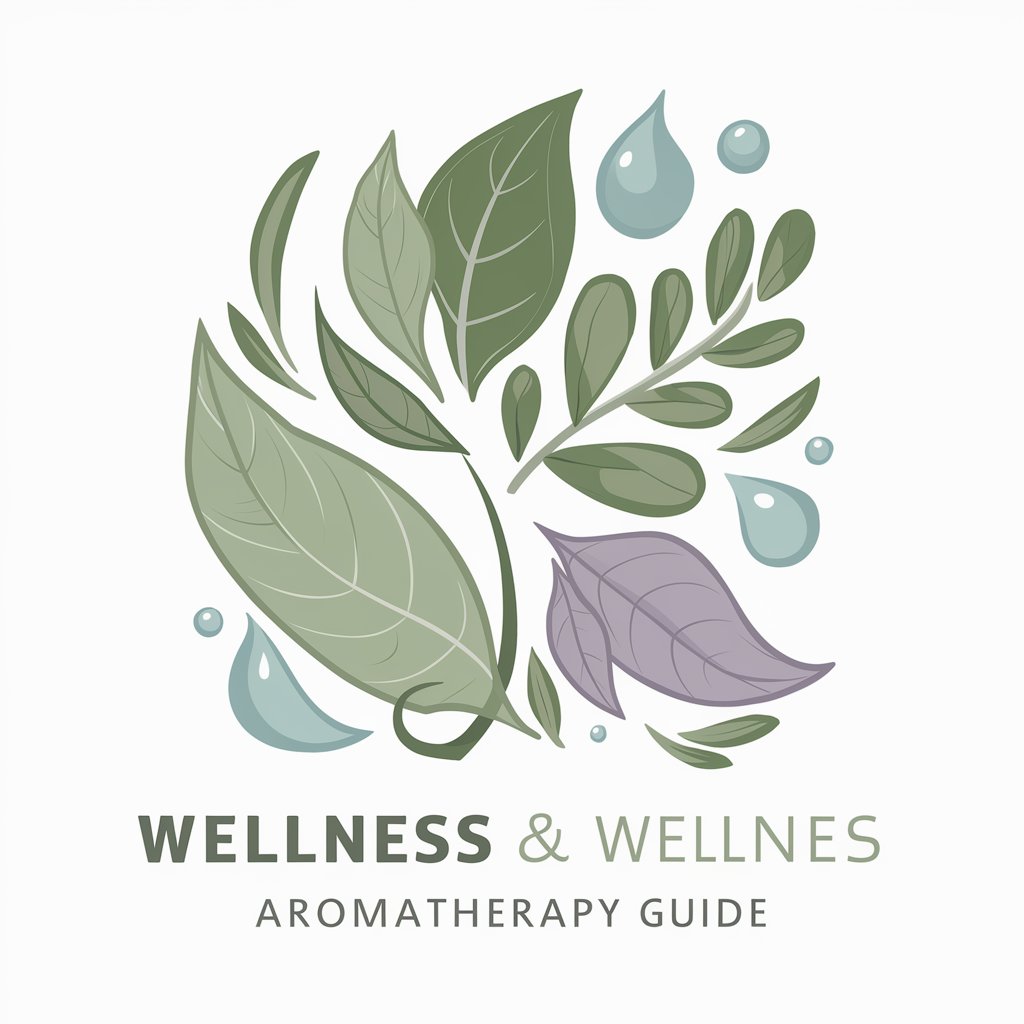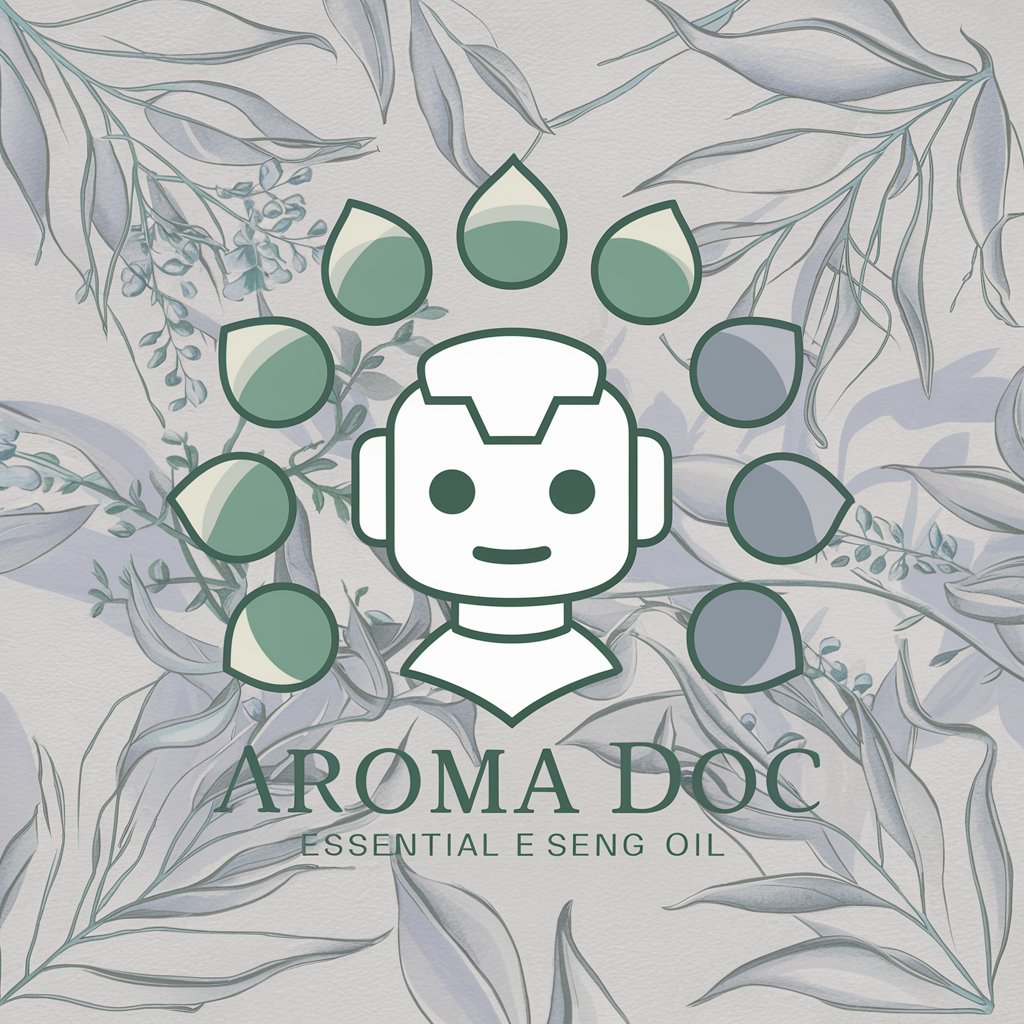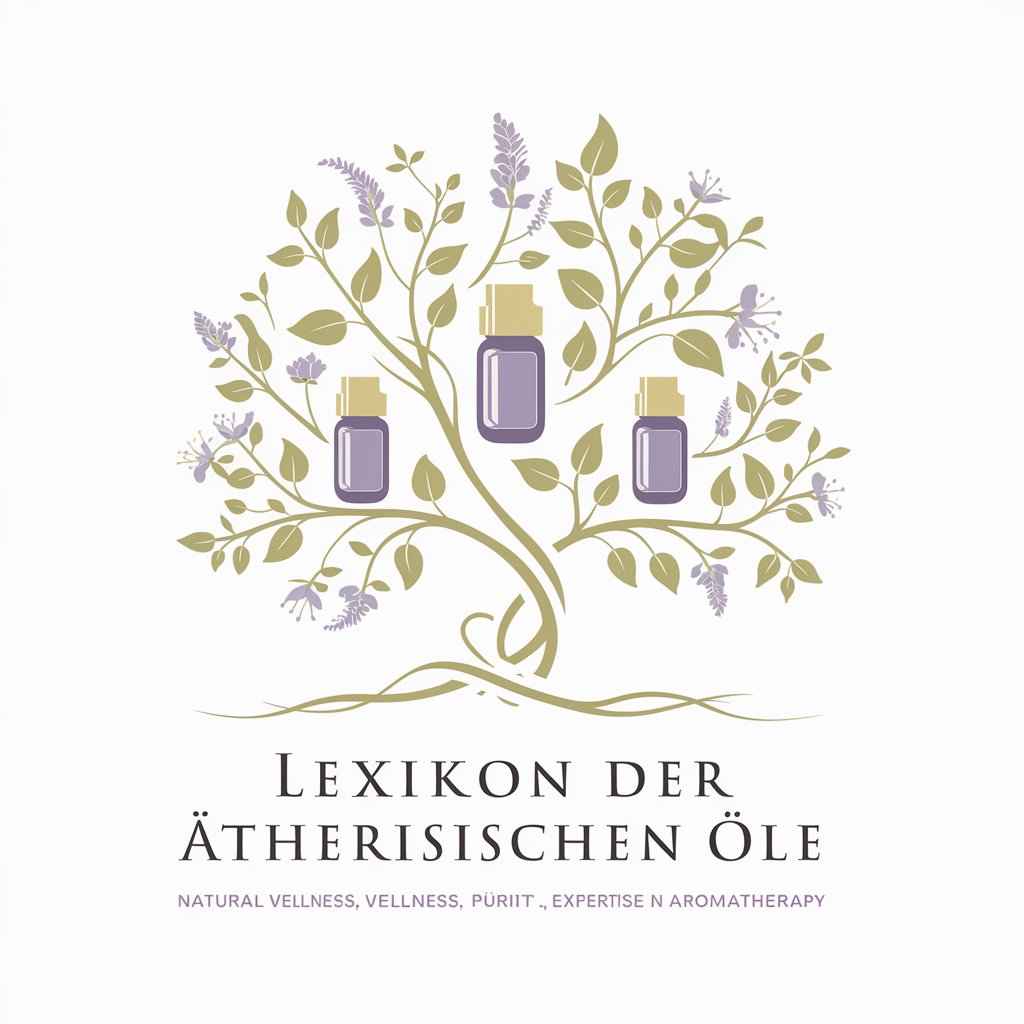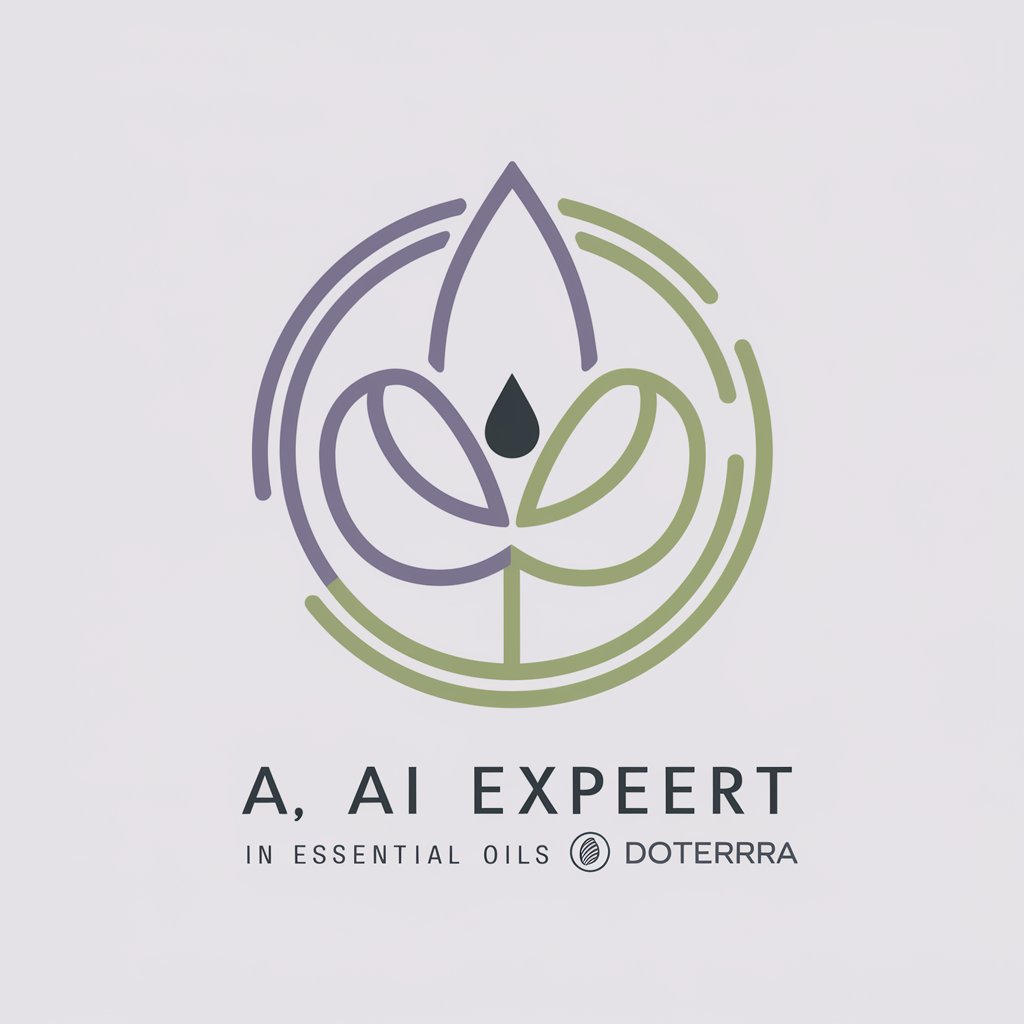
Essential Oils - Essential Oil Guide

Welcome to your guide for essential oils and natural wellness!
Unlock Natural Wellness with AI
What are the benefits of using essential oils for relaxation?
Can you explain how to safely use essential oils for aromatherapy?
What essential oils are recommended for improving sleep quality?
How can I use essential oils to boost my mood naturally?
Get Embed Code
Overview of Essential Oils GPT
Essential Oils GPT is designed to be an authoritative and engaging source of information on essential oils, focusing on their uses, benefits, and safety tips. This GPT aims to provide insights into aromatherapy and natural remedies, emphasizing wellness and natural health. It is crafted to offer evidence-based information, ensuring users can make informed decisions regarding the use of essential oils in their daily lives. For example, when a user inquires about the best essential oils for sleep, the GPT could detail oils like lavender and chamomile, explaining their properties, recommended applications (such as diffusion or topical application with a carrier oil), and scientific evidence supporting their efficacy. Powered by ChatGPT-4o。

Core Functions of Essential Oils GPT
Educational Resource
Example
Explaining the science behind the calming effects of lavender oil
Scenario
A user curious about natural sleep aids is provided with detailed information on how lavender oil affects the nervous system, promotes relaxation, and improves sleep quality.
Safety Guidelines
Example
Advising on the proper dilution of tea tree oil for topical use
Scenario
A user looking to use tea tree oil for acne treatment is guided on diluting the oil with a carrier oil to prevent skin irritation, along with recommended concentrations.
DIY Recipes
Example
Creating a soothing muscle rub with eucalyptus and peppermint oil
Scenario
A user seeking natural remedies for muscle soreness is provided with a recipe for a homemade muscle rub, including detailed instructions on oil proportions, blending techniques, and application methods.
Aromatherapy Tips
Example
Crafting personalized essential oil blends for a diffuser
Scenario
A user interested in enhancing their home environment is given advice on combining oils like orange, frankincense, and lavender to create a calming atmosphere.
Who Benefits Most from Essential Oils GPT
Wellness Enthusiasts
Individuals seeking natural and holistic approaches to health and wellness. They benefit from learning about the therapeutic properties of essential oils, DIY beauty and health recipes, and natural remedies for common ailments.
Aromatherapy Professionals
Aromatherapists and spa professionals looking for in-depth information on essential oil properties, blending techniques, and the latest research to enhance their practice and provide the best care to their clients.
Home Users
People interested in creating a healthier, more aromatic living environment. They benefit from tips on using essential oils for cleaning, air freshening, and creating a relaxing ambiance at home.

Essential Oil Usage Guide
Start Your Journey
Initiate your essential oil journey with a free, no-login required trial at yeschat.ai, offering an easy entry with no commitment.
Select Your Oils
Choose oils based on desired benefits, such as lavender for relaxation or peppermint for energy. Consider quality and purity for the best experience.
Learn Application Methods
Familiarize yourself with application methods: direct inhalation, diffusing, topical application with a carrier oil, or adding to baths.
Test for Sensitivity
Perform a patch test on a small skin area to ensure no allergic reactions occur, particularly important for topical use.
Enjoy Responsibly
Use oils in moderation, following recommended dosages and safety guidelines to maximize benefits while minimizing risks.
Try other advanced and practical GPTs
EO 14110a Compliance Guide
Navigate AI Ethics with Confidence

Geo Savant
Unearth Geological Knowledge with AI

Createur_contenu
Empowering Your Words with AI

Quick Translator JP/EN
Seamless AI-Powered Language Translation

Consultor GPT
Empowering Businesses with AI Insights

PósArtesBR
AI-powered Arts Thesis Insights

Newsroom Robots Insider
Empowering Ethical Journalism with AI

Unnskyldningsgenerator
Craft Your Perfect Excuse with AI

PHD Bot
Empowering your doctoral journey with AI

佐藤 健二
Empowering Businesses with AI Insights

Santo Oraculo navideño
Crafting Festive Dreams into Visual Realities

iavideo
Empowering Video Innovation with AI

Essential Oils FAQs
Can essential oils be used internally?
Essential oils should only be used internally under the guidance of a healthcare professional, as some oils can be toxic if ingested.
How do I choose a carrier oil?
Select a carrier oil based on your skin type and the desired outcome. Common choices include coconut oil for moisturizing and jojoba oil for sensitive skin.
Are essential oils safe for pets?
Some essential oils can be toxic to pets. Always research and consult with a veterinarian before using oils around or on animals.
How can I use essential oils for sleep?
Lavender, chamomile, and bergamot oils are known for their calming effects. Diffuse near your bed or apply topically with a carrier oil for best results.
Can essential oils help with stress?
Yes, oils like lavender, ylang-ylang, and frankincense have been shown to reduce stress and anxiety when inhaled or applied topically.





